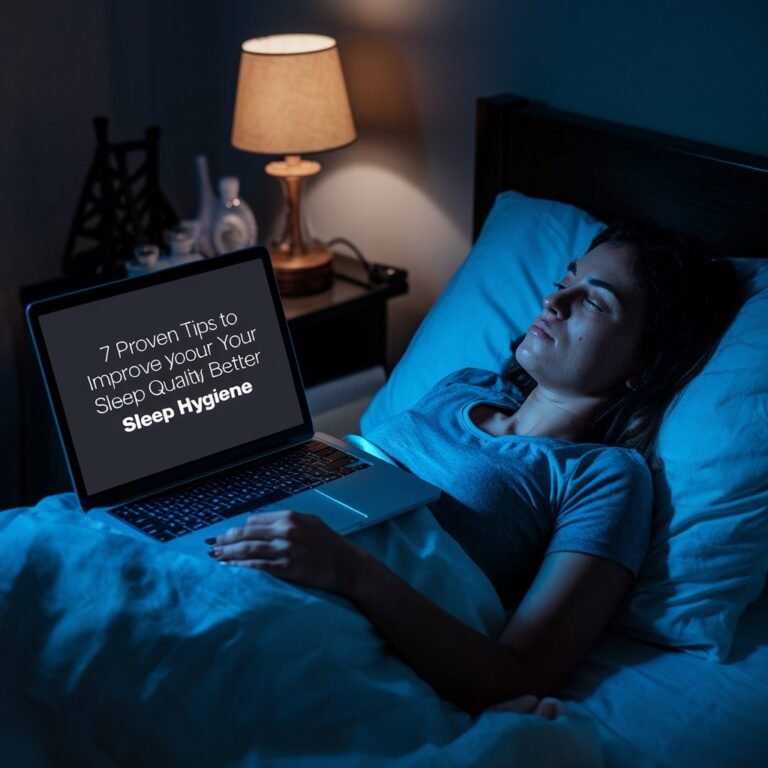
"Learn how to manage anxiety and find calm with 7 powerful tips. Overcome stress, improve mental health, and take control of your well-being today!"
Meta Description:
Discover 7 proven tips and strategies for managing anxiety. Learn how to reduce stress, improve mental health, and gain a sense of calm and control in your daily life.
Managing Anxiety: Tips and Strategies for Overcoming Stress

Anxiety is a natural response to stress, but when it becomes overwhelming, it can interfere with daily life. If you often feel anxious, worried, or stressed, you’re not alone. Millions of people experience anxiety, and learning how to manage it effectively is crucial for maintaining mental health and well-being.
In this article, we will explore 7 effective tips for managing anxiety, along with strategies to help reduce stress and regain a sense of calm. Whether you’re dealing with daily worries, social anxiety, or more generalized anxiety, these techniques can help you take control of your emotions and find relief.
What Is Anxiety?

Anxiety is an emotional response to perceived danger, stress, or uncertainty. While occasional anxiety is normal and can even help motivate you to complete tasks or meet deadlines, chronic anxiety can be debilitating. It can manifest in different forms, such as:
- Generalized Anxiety Disorder (GAD): Persistent, excessive worry about everyday events.
- Social Anxiety: Fear of being judged or embarrassed in social situations.
- Panic Disorder: Recurrent panic attacks involving sudden, intense fear or discomfort.
- Specific Phobias: Irrational fears related to specific objects or situations (e.g., heights, flying).
Understanding the underlying causes of your anxiety can help you address it more effectively.
7 Tips for Managing Anxiety

Here are 7 proven tips to help you manage anxiety and reduce stress in your life:
1. Practice Deep Breathing Techniques
One of the simplest and most effective ways to reduce anxiety is through deep breathing. This technique helps activate the body’s relaxation response and can lower heart rate and blood pressure. Try the following:
- Belly Breathing: Inhale deeply through your nose, allowing your abdomen to expand. Exhale slowly through your mouth.
- 4-7-8 Breathing: Inhale through your nose for 4 seconds, hold your breath for 7 seconds, and exhale through your mouth for 8 seconds. Repeat 3-4 times.
2. Exercise Regularly
Physical activity is a powerful way to reduce anxiety. Exercise increases the production of endorphins, which are natural mood boosters. Aim for at least 30 minutes of moderate activity, such as walking, jogging, or yoga, most days of the week.
Exercise also helps reduce muscle tension, improve sleep quality, and increase overall energy levels—all of which can help manage anxiety.
3. Limit Caffeine and Sugar Intake
Caffeine and sugar can stimulate the body and cause spikes in energy, which may trigger or worsen anxiety symptoms. Limit your consumption of caffeine, sugary drinks, and processed foods, and opt for balanced meals with whole foods, including fruits, vegetables, and lean proteins.
4. Adopt a Relaxation Practice
Incorporating relaxation practices into your daily routine can be an excellent way to manage anxiety. These practices help reduce muscle tension and promote a sense of calm. Some options include:
- Meditation: Focus on your breath or use guided meditation apps like Calm or Headspace.
- Progressive Muscle Relaxation: Tense and then relax each muscle group in your body, from your toes to your head.
- Mindfulness: Practice being present in the moment and observing your thoughts without judgment.
5. Get Enough Sleep
Lack of sleep can exacerbate anxiety. Aim for 7-9 hours of sleep each night to allow your body and mind to rest and recharge. If you struggle with sleep, try establishing a bedtime routine, limiting screen time before bed, and creating a calming environment in your bedroom.
6. Talk to Someone
Sometimes, sharing your thoughts and feelings with someone you trust can be incredibly helpful for managing anxiety. Whether it’s a close friend, family member, or mental health professional, talking about your anxiety can provide emotional support and help you gain perspective on the situation.
7. Consider Professional Help
If your anxiety is persistent and interferes with your daily life, it may be time to seek professional help. Therapies like Cognitive Behavioral Therapy (CBT) have been shown to be effective for treating anxiety. Medications like SSRIs (Selective Serotonin Reuptake Inhibitors) can also be prescribed to manage symptoms.
A mental health professional can help you identify the root causes of your anxiety and work with you to develop effective coping strategies.
Common Signs and Symptoms of Anxiety
Recognizing the signs of anxiety is crucial for managing it. Common symptoms may include:
- Restlessness or feeling on edge
- Rapid heartbeat or breathing
- Excessive worry or fear
- Trouble concentrating or thinking clearly
- Irritability
- Difficulty sleeping
- Muscle tension or headaches
If you experience these symptoms regularly, it may be time to explore methods for managing anxiety and seek support if necessary.
How to Overcome Anxiety: Additional Strategies

In addition to the tips mentioned above, here are a few more strategies to manage anxiety:
- Limit Exposure to Stressful Triggers: Identify situations or people that increase your anxiety and try to limit your exposure to them when possible. This can help reduce stress and prevent anxiety from escalating.
- Practice Gratitude: Focusing on positive aspects of your life can help shift your mindset and reduce anxious thoughts. Start a gratitude journal and write down three things you’re thankful for each day.
- Set Realistic Goals: Break large tasks into smaller, more manageable goals to avoid feeling overwhelmed. Celebrate small successes along the way.
FAQs About Managing Anxiety
1. What is the best way to manage anxiety naturally?
Natural methods like deep breathing, regular exercise, practicing mindfulness, and getting enough sleep can help manage anxiety effectively. Adopting a healthy lifestyle can make a significant difference in anxiety levels.
2. How can I tell if I need professional help for anxiety?
If your anxiety is persistent, intense, or affecting your daily functioning, it may be time to seek professional help. A therapist or counselor can work with you to address the underlying causes of anxiety and develop effective coping strategies.
3. Can exercise really help with anxiety?
Yes! Exercise releases endorphins, which help improve mood and reduce stress. Regular physical activity also helps regulate the body’s stress response, making it an excellent tool for managing anxiety.
4. Are there any foods that help reduce anxiety?
Yes! Foods rich in magnesium, omega-3 fatty acids, and B vitamins, such as leafy greens, salmon, and nuts, may help reduce anxiety. Avoiding excessive caffeine and sugar is also important.
5. Can I overcome anxiety without medication?
Yes, many people manage anxiety successfully through therapy, lifestyle changes, and stress-reduction techniques without the need for medication. However, some may benefit from medication in combination with other treatments. Consult a healthcare professional for guidance.
Resources and Links
- National Institute of Mental Health – Anxiety Disorders
Learn more about anxiety disorders. - Anxiety and Depression Association of America (ADAA)
Find resources for managing anxiety. - Mindful.org – Meditation for Anxiety
Explore mindfulness practices for managing anxiety. - American Psychological Association (APA)
Get expert advice on managing anxiety.
Summary…..
Anxiety is a common yet challenging condition that can significantly impact daily life. This article explores 7 effective tips and strategies for managing anxiety and stress, including deep breathing exercises, regular exercise, and mindfulness practices. It emphasizes the importance of limiting caffeine and sugar intake, getting enough sleep, and seeking professional help when needed. Understanding the symptoms of anxiety and implementing these strategies can help reduce its impact and improve mental well-being. Whether through relaxation techniques, physical activity, or therapy, managing anxiety is an achievable goal, leading to greater calm and control in everyday life.





